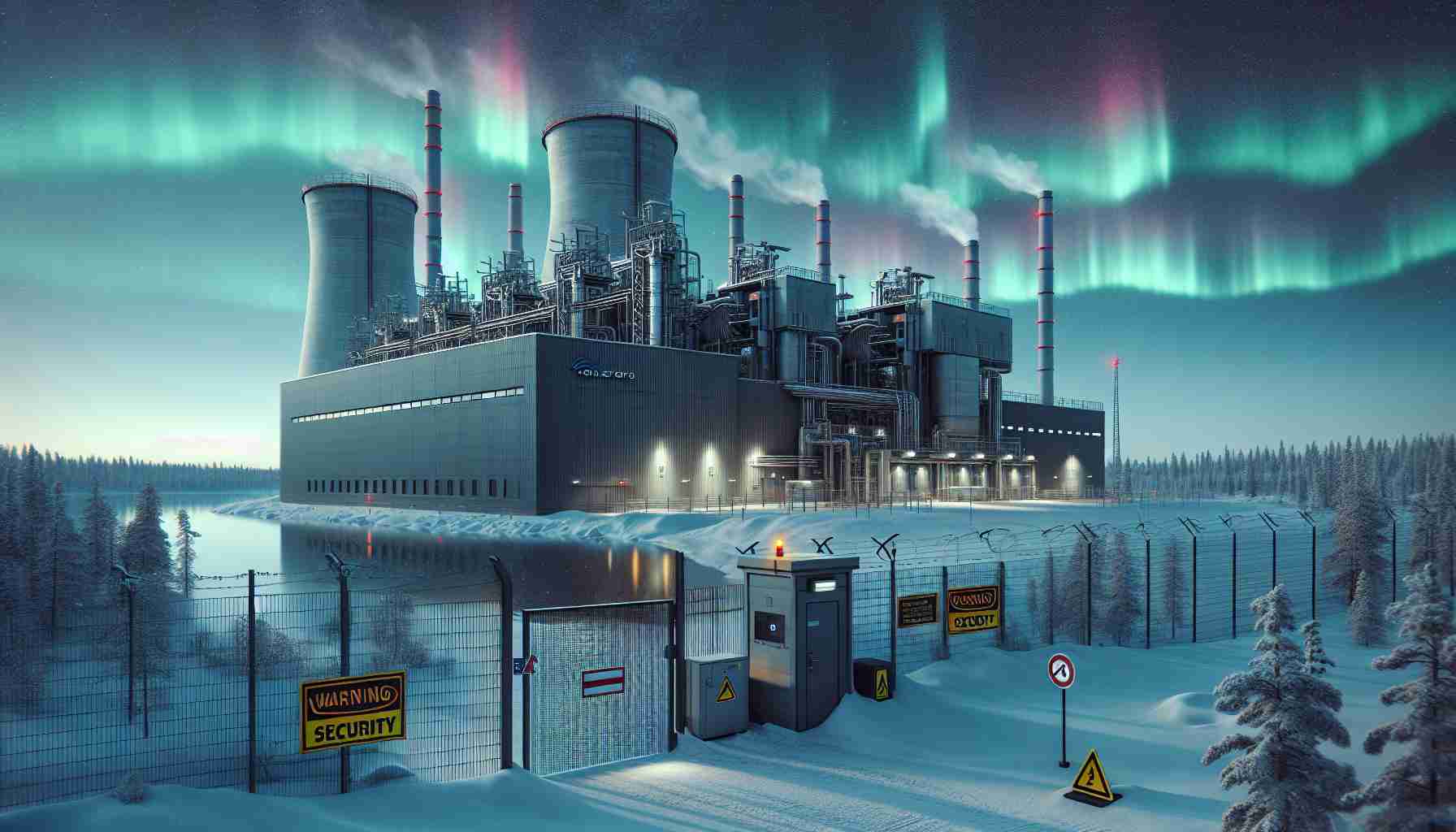
Fortum, the largest energy provider in Finland, has encountered a series of security threats that jeopardize its operations. Recent reports detail disruptions to satellite communications, unauthorized drone sightings, and the presence of suspicious individuals around its facilities. The company’s CEO highlighted that such cyber threats and suspicious activities occur on a daily basis.
Earlier in the year, some power station satellite connections experienced significant interference, prompting Fortum to request a thorough investigation by Finnish law enforcement. According to the CEO, these security issues are not limited to Finland, as similar incidents have been reported at its Swedish operations as well.
While both Finland’s Security and Intelligence Service and the Swedish equivalent have chosen not to disclose specifics about these threats, they acknowledged an increase in attempts to breach security protocols. Fortum has implemented robust protective measures to counteract these activities, including enhanced security protocols, private surveillance, backup systems, and collaborative drills with government agencies.
Despite the alarming rise in incidents, the head of security at Fortum has reassured that the actual impact on operations remains minimal. Law enforcement agencies, including the Finnish National Bureau of Investigation, are actively pursuing multiple investigations related to these occurrences around critical infrastructure. As the situation develops, Fortum continues to prioritize the safety and security of its energy assets.
Fortum’s Rising Security Challenges: A Broader Context
As Finland’s largest energy provider, Fortum is facing escalating security challenges that pose significant risks not only to its operations but also to national energy security. In the wake of recent incidents highlighting vulnerabilities, it becomes essential to explore the depth and breadth of these challenges, the implications for Fortum and the Finnish energy sector, as well as potential future developments.
What are the key challenges facing Fortum?
One of the primary challenges is the increasing sophistication of cyber threats. Fortum has reported a rise in cyber-attacks aimed at critical infrastructure, with hackers employing advanced techniques to disrupt services. This is indicative of a larger trend, as energy companies worldwide are being targeted due to their vital role in national security and public welfare.
Moreover, there is a growing concern about geopolitical tensions in the region, particularly in light of conflicts adjacent to Finland, which could exacerbate security risks. The proximity to Russia raises alarms regarding potential espionage and cyber warfare tactics designed to target critical infrastructure in Finland and Sweden.
What controversies and implications arise from these security challenges?
The rising number of security incidents has spurred debate around the effectiveness of current security measures in place at Fortum’s facilities. Critics argue that despite increased investment in security, the frequency of breaches suggests vulnerabilities remain unaddressed. This has prompted discussions in Finnish parliament about strengthening laws surrounding national critical infrastructure security, which could involve stricter regulations and oversight for energy providers.
Another significant concern is the potential impact on consumer trust. With the public becoming increasingly aware of security threats, there could be a decline in confidence in Fortum’s ability to ensure a stable and secure energy supply. This might push the company towards enhanced transparency measures regarding its operations and security protocols.
Advantages and disadvantages of Fortum’s security measures
The advantages of Fortum’s current approach include the establishment of robust security protocols and collaboration with government agencies, which enhance the overall resilience of the energy sector. Investments in technology and training for employees foster a proactive security culture and improve response times to incidents.
On the downside, these measures come at a significant financial cost, which could ultimately affect energy prices for consumers. Additionally, heavy reliance on private surveillance and backup systems creates concerns about privacy and the potential for overreach, raising ethical questions about the balance between security and individual rights.
What future steps can Fortum take to mitigate risks?
Fortum could benefit from increased collaboration with other energy providers and government entities to share intelligence on security threats. Establishing a national task force focused explicitly on securing critical infrastructure could bolster collective defense mechanisms. Furthermore, integrating advanced technologies such as AI and machine learning for real-time threat detection and response may enhance capabilities.
The key questions surrounding Fortum’s rising security challenges, potential implications for energy security in Finland, and consumer trust remain pertinent as the situation unfolds. Fortum must address these issues proactively to fortify its operations against the ever-evolving threat landscape.
For further information, visit Fortum and explore how they are adapting to meet these challenges in the future.






